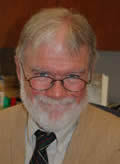
The Year of Our Lord 2011 has begun auspiciously enough in northern Indiana, with seasonably arctic temperatures and unusual sunshine agreeably offsetting each other. The Notre Dame students won’t return until midmonth, and the deserted campus has the capacious feel of a beautiful, if underused, park.
Notre Dame staff members and faculty are slowly repopulating the place, returning from the Christmas festivities and resolved, most of us, to renounce the overindulgence of the universal saturnalia which coincides with the Christian celebration of the Word become flesh.
And flesh seems to be the main problem. At midday, the running lanes of the Rolf’s Sports Recreation Center and the stairmasters and stationary bicycles in the faculty locker room are swarmed by penitent former merrymakers. Just this morning, a colleague declined a ride on the Grace Hall elevator, announcing her New Year’s resolution to use the stairway to our fifth floor offices. As we brew black coffee in Spartan break rooms, we ruefully recall the nonchalance with which we fattened on the donuts and cookies and cakes of yesteryear and resolve . . . never again. 2011 will be different from 2010.
Among us returnees, here at Notre Dame as in workplaces around the world, nearly every conversation includes some reference to a fresh start, a clean slate, a new beginning. We’ll soon be hearing students talking the same way as they begin the next semester. The New Year, a calendar adjustment in itself no more or less remarkable or significant than a car odometer’s registering another mile, inclines us to such metaphors.
But a metaphor can as easily obscure a truth as suggest it. Presumably intended as an inspiration for the invasion of Italy in 1943, Winston Churchill’s plucky description of the Italian peninsula as “the soft underbelly of the Axis” seems to miss something of the 320,000 Allied and 658,000 Axis casualties in the butcher’s bill of the subsequent Italian Campaign.
So it is with the New Year’s frequently invoked “clean slate,” our language’s version of the Latin tabula rasa, the waxen writing tablet that ancient Romans would scrape, heat and smooth over to inscribe something new. That longed-for and unblemished surface, that personal realm of innocence and pure potentiality could well be as illusory — perhaps even as lethal — a thing as Churchill’s “soft underbelly.” Not all slates are easy to clean, certainly not mine.
For a certain kind of believer, the celebration of the fresh New Year elicits, even obliges, a Scrooge-like reaction. But if we snort “Bah humbug” at the calendar-waving evangelists of the clean slate, it isn’t so much that we begrudge their New Year’s resolutions as that they distract us from a birthday celebration still under way:
Of a Newborn who just won’t wait for us to be ready for his birth, who comes whether or not we’ve quit eating and drinking too much, whether or not we’re back in shape, whether or not we’ve put our accounts right, or turned over a new leaf, or cleaned up our act. Ready or not, here He comes, among quaking shepherds, inhospitable innkeepers, clueless churchgoers, ruthless statesmen, rapacious merchants, bullying soldiers and ne’er-do-well working stiffs like . . . well, very much like us, the people with dirty slates.
Michael Garvey is Notre Dame’s assistant director of public information and communication. Email him at garvey.2@nd.edu.